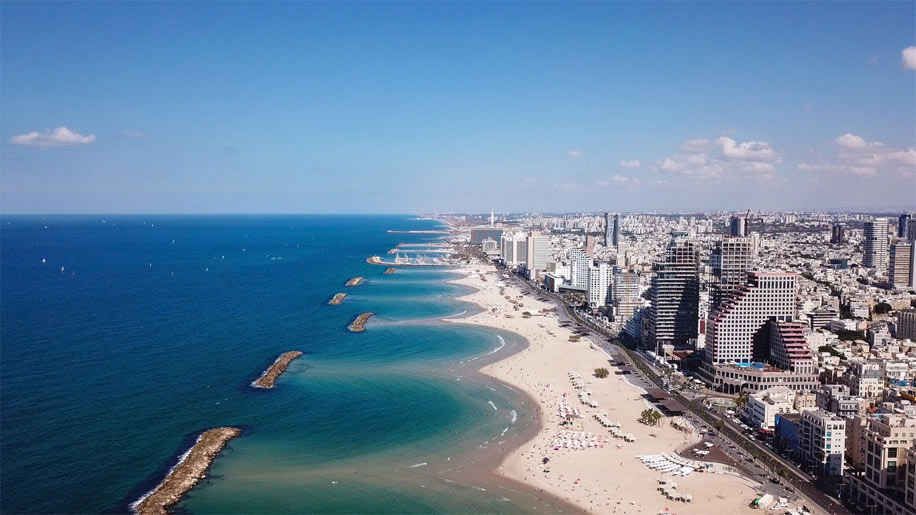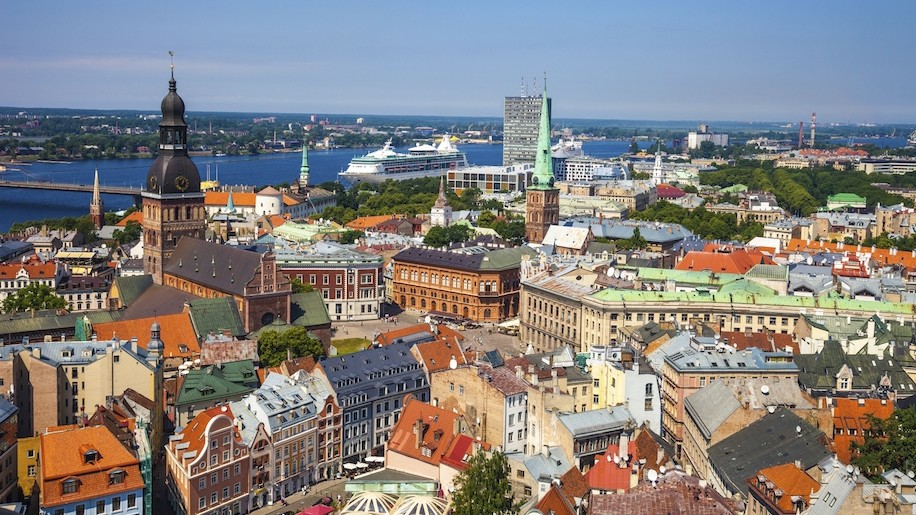
Several countries are requiring travellers to show proof of a Covid-19 booster jab due to the fear of spreading Covid-19 variants such as Omicron.
The definition of “fully vaccinated” differs depending on the country, with some putting time limits on the initial two doses of the vaccine. This may not restrict entry to the country, but might mean that you won’t be able to access certain venues and services upon arrival.
Last year the European Commission proposed a nine-month time limit on vaccination certificates for travel to and within the European Union.
Travellers from the UK can show proof of a booster vaccination within the NHS Covid Pass for international travel. Here we round up the countries that require boosters or third doses either for entry or for domestic activities.
Note that the rules are always subject to change.

Austria
Travellers must have received the second dose of the vaccine no more than 270 days before entry into the country, or received a booster shot no more than 270 days ago to qualify as fully vaccinated.
Once in Austria, two-dose vaccinations are only valid for 180 days, but the booster is valid for 270 days.
Alternatively, travellers will need to provide either a recovery certificate (valid from 11 days after a positive test date, and for a period of 180 days), a PCR test no more than 72 hours before arrival in the country or an antigen test no more than 24 hours before entry.
Without a negative PCR test or proof of a booster at the time of entry, travellers must fill in a pre-travel clearance form and enter a 10-day quarantine.
Belgium
A second dose of vaccine (or sole dose in the case of the Johnson and Johnson vaccine) must have been administered less than 270 days ago for incoming travellers to qualify as fully vaccinated. Those who have had a booster shot qualify as fully vaccinated.
Alternatively, travellers will need to provide either a recovery certificate (valid from 11 days after a positive test date, and for a period of 180 days), a PCR test no more than 72 hours before arrival in the country or an antigen test no more than 24 hours before entry.
Bulgaria
If you have received your second vaccine more than 270 days before your arrival, you will need to show evidence that you have had an additional booster dose to enter without restrictions such as testing.
Alternatively, travellers will need to provide either a recovery certificate (valid from 11 days after a positive test date, and for a period of 180 days), a PCR test no more than 72 hours before arrival in the country or an antigen test no more than 48 hours before entry.

Croatia
Travellers must have received the second dose of the vaccine no more than 270 days before entry into the country, or received a booster shot.
Alternatively, travellers will need to provide either a recovery certificate (valid from 11 days after a positive test date, and for a period of 180 days), a PCR test no more than 72 hours before arrival in the country or an antigen test no more than 24 hours before entry.
Czech Republic
Travellers must have received the second dose of the vaccine no more than 270 days before entry into the country, or received a booster shot.
Alternatively, travellers can provide a recovery certificate (valid from 11 days after a positive test date, and for a period of 180 days). Those who have not been fully vaccinated or previously had Covid-19 will only be allowed to enter for essential reasons.
Estonia
Travellers must have received the second dose of the vaccine no more than 270 days before entry into the country, or received a booster shot.
Alternatively, travellers can provide a recovery certificate (valid from 11 days after a positive test date, and for a period of 180 days). Those who have not been fully vaccinated or previously had Covid-19 will have to undergo a seven-day isolation.

France
Travellers must have received the second dose of the vaccine no more than 270 days before entry into the country, or received a booster shot.
Alternatively, those who have not been fully vaccinated or previously had Covid-19 will have to provide a reason for essential travel, a negative PCR test result taken within 72 hours, or an antigen test result taken within 48 hours before departure, and a sworn statement.
Once in France, travellers will need to download the country’s pass vaccinal (vaccine pass) to access services and venues in the country. This is accessible to:
- Those who are fully vaccinated, but with a booster vaccine within four months of their second dose
- Those with proof of recovery (valid from 11 days after a positive test date, and for a period of four months)
- Those with proof of a medical exemption from vaccination.

Greece
Travellers must have received the second dose of the vaccine no more than 270 days before entry into the country, or received a booster shot.
Alternatively, those who have not been fully vaccinated or previously had Covid-19 will have to provide a negative PCR test result taken within 72 hours, or an antigen test result taken within 24 hours before arrival in Greece.
Once in Greece, two-dose vaccinations are only valid for seven months, but the booster does not have a time limit. If it has expired, travellers will have to present proof of a negative rapid test, taken up to 48 hours before entry, to visit other public spaces including shops and restaurants (outdoors).
Italy
Travellers must have received the second dose of the vaccine no more than 270 days before entry into the country, or received a booster shot.
Alternatively, travellers will need to provide either a recovery certificate (valid from 11 days after a positive test date, and for a period of 180 days), a PCR test no more than 72 hours before arrival in the country or an antigen test no more than 48 hours before entry.
Once in Italy, two-dose vaccinations are only valid for 180 days, but the booster does not have a time limit. If it has expired, travellers will have to present proof of a negative rapid test (valid for 48 hours) or PCR test (valid for 72 hours) to access services and transport.

Israel
Travellers must have received the second dose of the vaccine no more than 180 days before entry into the country, or received a booster shot. Travellers must also take a PCR test no more than 72 hours before departure or an antigen test no more than 24 hours before departure. Another PCR test must be taken upon arrival at their own expense, with a 24-hour isolation.
Alternatively, travellers will need to provide a recovery certificate (valid from 8 days after a positive test date, and for a period of 180 days). Those who have not been fully vaccinated or previously had Covid-19 will need to provide a specific exemption to visit Israel.

Latvia
Travellers must have received the second dose of the vaccine no more than 270 days before entry into the country, or received a booster shot.
Alternatively, travellers will need to provide either a recovery certificate (valid from 11 days after a positive test date, and for a period of 180 days), a PCR test no more than 72 hours before arrival in the country or an antigen test no more than 48 hours before entry.
The Netherlands
Travellers must have had the second dose of the vaccine no more than 270 days before entry into the country, or received a booster shot. Travellers are advised to take a self-test after arriving.
Travellers will need to provide a recovery certificate (valid from 11 days after a positive test date, and for a period of 180 days). Those who have not been fully vaccinated or previously had Covid-19 will need an exemption.

Portugal
Travellers must have received the second dose of the vaccine no more than 270 days before entry into the country, or received a booster shot.
Alternatively, travellers will need to provide either a recovery certificate (valid from 11 days after a positive test date, and for a period of 180 days), a PCR test no more than 72 hours before arrival in the country or an antigen test no more than 24 hours before entry.
Singapore
Travellers can enter the country provided that they have received two doses of the vaccine at least two weeks before arrival in Singapore.
Once in Singapore, two-dose vaccinations are only valid for 270 days, but the booster does not have a time limit. Travellers will need to download the country’s TraceTogether app to access services and venues in the country.
Spain
Travellers must have received the second dose of the vaccine no more than 270 days before entry into the country, or received a booster shot.
Alternatively, travellers will need to provide a recovery certificate (valid from 11 days after a positive test date, and for a period of 180 days). Those who have not been fully vaccinated or previously had Covid-19 will need to provide a specific exemption to visit Spain.

Switzerland
Travellers must have received the second dose of the vaccine no more than 270 days before entry into the country, or received a booster shot.
Alternatively, those who have not been fully vaccinated will need to provide a specific exemption to visit Switzerland.










